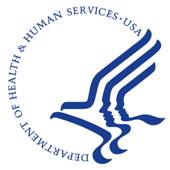Request for Emergency Review and Clearance
Emergency Request Memo_OROV Response_10.25.24.docx
[NCEZID] Oropouche Virus Disease Outbreak
Request for Emergency Review and Clearance
OMB: 0920-1446
D EPARTMENT
OF HEALTH & HUMAN SERVICES Public Health
Service
EPARTMENT
OF HEALTH & HUMAN SERVICES Public Health
Service
_______________________________________________________________________________________
Centers for Disease Control
and Prevention (CDC)
Atlanta GA 30341-3724
October 23, 2024
Dominic Mancini
Deputy Director
Office of Information and Regulatory Affairs
Office of Management and Budget
Washington, DC
Subject: Request for Emergency Review and Clearance
Dear Mr. Mancini:
Pursuant to Office of Management and Budget (OMB) procedures established at 5 CFR Part 1320, Controlling Paperwork Burdens on the Public, I request that the proposed information collection project, “Risk factors, clinical course, presence and persistence of virus in various bodily fluids, and risk of sexual transmission among U.S. adults with Oropouche virus disease” be processed in accordance with section 1320.13, Emergency Processing.
I have determined that this information must be collected prior to the expiration of time periods established under Part 1320, and that this information is essential to CDC’s mission to protect America from health, safety, and security threats. The purpose of this investigation is to better define the risk factors, clinical course, viral shedding, and potential for sexual transmission among patients with Oropouche virus disease. The findings of this investigation will inform prevention guidance, improve clinical recognition and diagnosis, ultimately aiding our ability to detect and respond to Oropouche virus disease outbreaks. This information collection request (ICR) needs to go forward as an Emergency to avoid any delays in collecting essential actionable information in this rapidly evolving situation.
Beginning in late 2023, Oropouche virus was identified as the cause of multiple outbreaks with over 10,000 cases from 6 countries reported in 2024 as of October 15. With these outbreaks, the virus was reported to cause disease cases in new non-endemic areas, result in the first reported deaths, and be associated with fetal demise and congenital anomalies in Brazil. In October 2024, a publication in Emerging Infectious Diseases described a patient diagnosed with Oropouche, who had Oropouche virus and viral RNA in bodily fluids, including semen. This evidence suggests that there could be sexual transmission. Furthermore, last week, PAHO reported an adverse birth outcome in Cuba related to OROV infection. The first report of an adverse pregnancy outcome outside of Brazil is a significant development to determining a causal link between OROV in pregnancy and adverse pregnancy outcomes.
Although local transmission of the virus has not been detected yet in the United States, the vectors capable of transmitting the virus are present in many states and at least 90 cases of U.S. travelers returning to the United States while infected with the virus have been reported. All of these findings and factors, raise concerns about the broader threat this virus represents to the United States. There are numerous gaps in our understanding of this emerging virus, including the urgent need to evaluate the possibility of sexual transmission to inform prevention recommendations, especially for pregnant people and their partners, or those considering pregnancy.
CDC cannot reasonably comply with the normal clearance procedures because the resulting information is needed urgently to inform public health recommendations to prevent the spread of disease. Furthermore, as time lapses from case patients’ initial travel, recall bias can prevent CDC from receiving the most accurate information to understand the broader transmission risk. CDC consulted with state health department staff via email and phone calls on this information collection. Based on state and local health department input, CDC was better able to inform data collection across multiple jurisdictions to meet critical emergency response needs while also ensuring state and local health departments were not overly burdened with this collection. Therefore, the ICR needs to be go forward as an emergency to prevent a lapse in collection activities. CDC requests a 180-day emergency clearance to begin this investigation.
Please provide an approval/disapproval determination of this request to collect information under an emergency clearance by close of business October 25, 2024.
Respectfully,

Daniel B. Jernigan, MD, MPH
Director, National Center for Emerging and Zoonotic
Infectious Diseases (NCEZID), Centers for Disease
Control and Prevention (CDC)
| File Type | application/vnd.openxmlformats-officedocument.wordprocessingml.document |
| Author | Samuel, Lee (CDC/OID/NCEZID) |
| File Modified | 0000-00-00 |
| File Created | 2024-10-29 |
© 2026 OMB.report | Privacy Policy